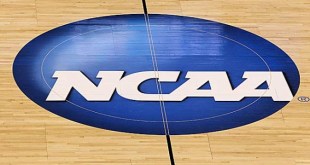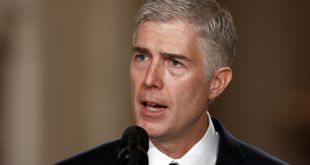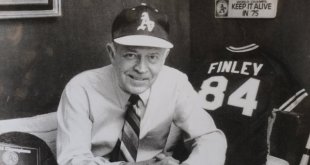Tweet
On Wednesday, September 10, 2014, Leigh Castergine filed a complaint against the New York Mets and Jeffrey Wilpon in the United States District Court for the Eastern District of New York claiming Wilpon and the Mets discriminated against her on the basis of sex, pregnancy, and familial status. This news was essentially buried under a news day involving new Ray Rice video footage and talking heads trying to determine whether or not Danny Ferry is just a little bit racist or racist enough to be fired for his comments regarding Luol Deng. This article will attempt to shed more light on an intriguing news story which was essentially skipped over.
The facts of the allegations are essentially this. Leigh Castergine was a rising star in the Mets front office holding a position as one of the top marketing and sales executives. When Castergine became pregnant, she alleges her employer, Mets owner Jeff Wilpon subjected her to harassment and eventually termination because of the fact that she was pregnant, and subsequently a mother, without being married. The specific allegations are appalling, facepalm worthy and can be read in the full complaint. This article will examine the framework of some of the legal arguments Castergine has levied at the Mets and Wilpon, and what the Mets likely response will be.
Castergine alleged complaints under New York Executive Law Section 296, the Civil Code of New York, and the Family and Medical Leave Act (“FMLA”). This article will examine her discrimination claims brought under New York Executive Law Section 296, and New York State anti-discrimination law. Complaints under these laws are analyzed under the same framework as Title VII cases. Title VII is the main federal anti discrimination statute.[i] Castergine has alleged two discrimination causes of action (termination and hostile workplace) in addition to a retaliation cause of action under Section 296.
Discriminatory Termination
The prima facie case for Castergine’s discriminatory termination cause of action requires her to meet four prongs. First, she must show she is in a protected class. This is met easily, as Castergine can show she is part of three distinct protected classes based on sex, pregnancy, and familial status. Next Castergine will have to show she was actively or constructively terminated. This will also be easily met as she was indeed terminated. Castergine will have to show she was qualified for her position. This will likely be met as the details of her complaint recount numerous awards and performance bonuses Castergine received over time. Finally Castergine will have to show she was terminated under an inference of discrimination. The comments and behavior on the part of Wilpon and the Mets Organization in the complaint will be sufficient to prove this inference of discrimination. These allegations include Wilpon’s comments that she will get paid more when she “gets a ring,” and the actions of the Mets HR director who encouraged her to quit after she raised complaints about her treatment.
Once the prima facie case has been met, the Employer will have the opportunity to proffer a non discriminatory reason for the termination. In this case the Mets will allege that Castergine’s performance dropped and that post pregnancy she had failed to meet sales goals. Assuming a court finds this a legitimate reason (performance based firings are usually legitimate) the burden will shift back to Castergine to show that this proffered reason was a pretext for discrimination. Assuming Castergine can substantiate at least some of the allegations in her complaint, she will likely have a good chance to succeed on this claim and prove that her “performance issues” were a pretext for discrimination. It will be important for Castergine to note (assuming the allegation is accurate) that issues with her performance were not discussed with her until nearly a year after the alleged harassment of her began.
Hostile Workplace
Castergine also alleges what is commonly known as a “hostile workplace” claim based on discrimination. The prima facie case for this claim is as follows. First Castergine will have to allege she was part of a protected class, (she is clearly part of three protected classes as described above). Second, that she was subject to unwelcome harassment, that the harassment was based on her status in a protected class, that the harassment was so severe as to affect a term or condition of employment and that the employer knew about the harassment and did nothing.[ii]
The key to this argument will be whether or not the harassment was so severe as to affect a term or condition of employment. Single or isolated incidents of harassment generally do not rise to an actionable level. Given the allegation that Wilpon told Castergine that she would get a raise and a promotion “when she got a ring,” would be strong evidence, if true, of the alleged harassment affecting a term or condition of employment. Since the owner was allegedly responsible for the harassment, it is unlikely the employer would have a defense based on appropriate remedial action. Unlike in Castergine’s first cause of action, there is no affirmative defense for the employer or opportunity to allege a legitimate reason for terminating the employee.
Retaliation
Finally Castergine’s third cause of action is for retaliation. Castergine engaged in protected activity when she complained to human resources about the harassment.[iii] The prima facie case for a retaliation claim involves a plaintiff alleging that the employee engaged in protected activity, that the employer was aware of the employee’s protected actions, that the employee suffered an adverse employment action (for example termination) and that there is a connection between the protected activity and the adverse employment action. For this cause of action, if a plaintiff proves all the elements, the verdict will be for the plaintiff.[iv] There are no affirmative defenses or rebuttable presumptions available to the employer here.
Assuming the details of the complaint are not only accurate but provable, it is difficult to see how Castergine could lose on any of the above three causes of action. However, much of the complaint regards statements made by the owner of the Mets. These may be difficult to substantiate. Other employees may not be quick to stand up and testify fearing retaliation against their own careers for doing so. In essence it could come down to who the finder of fact in the case (assuming it goes to trial) finds more believable, Castergine, or Wilpon (and the parade of Mets employees he will call to the stand for his defense).
[i] See Weinstock v. Columbia University 224 F.3d 33. Sexual Harassment Panda
[ii] See Weinstock
[iii] See http://www.eeoc.gov/laws/types/facts-retal.cfm
[iv] http://www3.ce9.uscourts.gov/jury-instructions/node/173
 The Sports Esquires Putting Sports on Trial
The Sports Esquires Putting Sports on Trial




